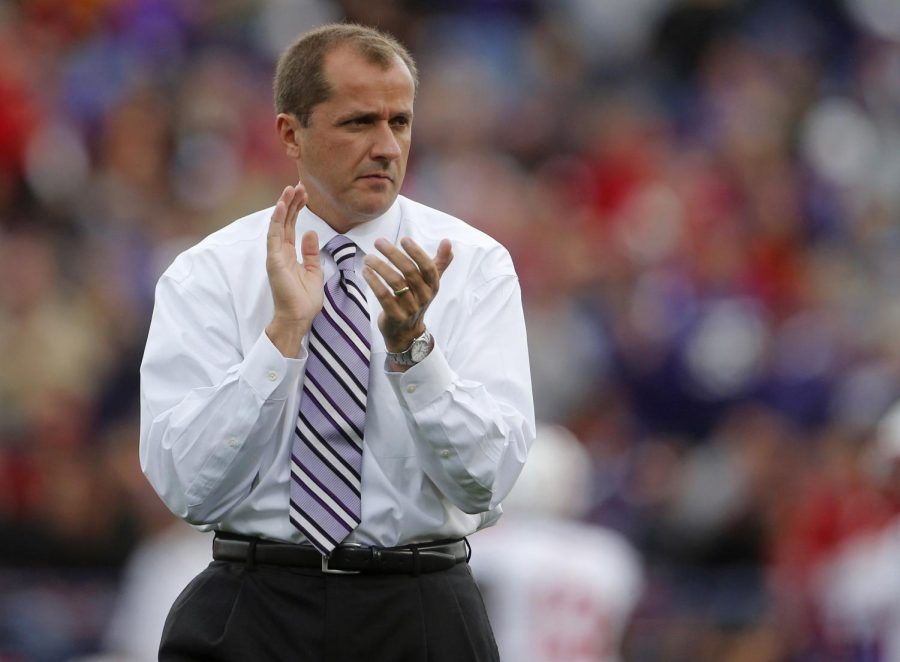ACC, Big 10, Pac 12 commissioners announce inter-conference alliance
Image via Brian Cassella, Chicago Tribune, TNS
Atlantic Coast Conference commissioner Jim Phillips announced an “alliance” with the Big Ten and PAC-12.
August 24, 2021
tlantic Coast Conference commissioner Jim Phillips and his counterparts, Kevin Warren of the Big Ten and George Kliavkoff of the Pac-12, announced in a joint press conference on Tuesday afternoon that the three leagues would join to form an “alliance” beginning immediately.
Rumors had stirred over the past couple of weeks that this kind of deal — unofficially referred to as “The Alliance,” because those who organized the agreement didn’t name it — could be coming. The Big 12 looks like it will struggle to retain national prominence and revenue after its two cash cows — Oklahoma and Texas, two of the top-eight highest revenue-earning athletic departments in the country — ditched their current league for the Southeastern Conference. The SEC would make huge gains while the Big 12 presumably takes on massive losses.
According to the three commissioners, the alliance is a recognition of college athletics’ volatility as well as the need for institutions to shore up their defenses against the lure of greener pastures in the SEC or a college football Super League for blue bloods like Clemson, USC and Ohio State.
Its biggest focal points are scheduling and unified decision-making for the conferences in the face of football’s proposed playoff field expansion, liberalized name, image and likeness rules and conference realignment.
The aligned conferences want to consolidate their power in the face of an SEC that will command even more money and political clout after the additions of Oklahoma and Texas in 2025. But Tuesday’s press conference revealed cracks in that united front immediately.
Phillips said the ACC was still reviewing where they stand on College Football Playoff expansion. Warren said he was a fan of expansion, even though the Big 10 was still reviewing some of its potential impacts. And Kliavkoff said the Pac-12 was “100% in favor” of the expanded field.
The commissioners said they also want to open up opportunities for more marquee games — particularly in football and basketball — against other Power 5 opponents. The alliance does not intend to prevent teams from scheduling other Power 5 opponents from non-alliance conferences, but rather incentivize aligned schools to play one another.
The 41 athletic directors, presidents and chancellors of each member school in the ACC, Pac-12 and Big Ten unanimously supported the alliance, according to a joint press release. But it has no legal binding, Kliavkoff said during the press conference.
“There is no signed contract,” he said. “It is an agreement between three gentlemen. … It is a commitment from 41 presidents and athletic directors. … There is no signed contract because there doesn’t need to be.”
All three commissioners delivered opening statements that described a frighteningly uncertain college athletics landscape. Phillips called it “unstable” and Kliavkoff said it was “in turmoil.”
When asked if it was possible to achieve stability without a contract binding the schools and conferences together, Phillips said the alliance’s existence rests upon the good faith of its members. All three commissioners spoke about each school’s “shared values” as a reason to count on this agreement’s success.
“I’d say this proves it’s about trust,” Phillips said. “We’ve looked each other in the eye. We’ve made an agreement. If [contracts] are what it takes to get something considerable done, then we’ve lost our way.”








